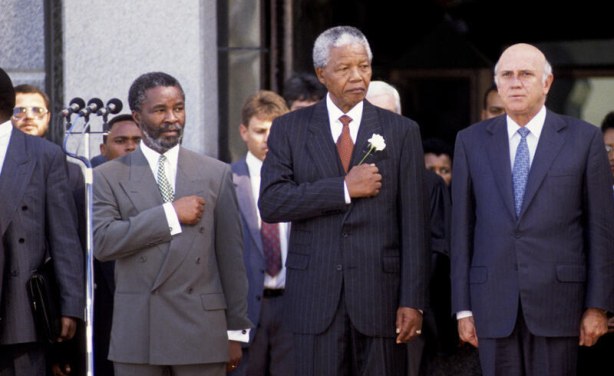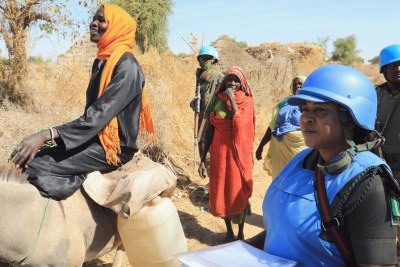-
Africa: Simplifying Peacemaking in a Complex World
African Arguments, 12 July 2022
Three former heads of state of Nigeria, South Africa, and Ethiopia reflect on what it takes to end conflict in a meaningful way. Read more »
Simplifying Peacebuilding in a Complex World
As conflict and war rages on in many parts of the world, it has become more complex to sustain peace. Three former heads of state of Nigeria, South Africa, and Ethiopia reflect on what it takes to end conflict in a meaningful way.
In the wake of the Cold War, the disintegration of an ideologically bipolar world provided an opportunity for peace agreements across the globe. This was even the case in seemingly intractable conflicts like Nicaragua, El Salvador, Namibia, and South Africa. From that era, they identify three key ingredients for successful peacemaking and mediation stand out. These key ingredients are: first, the solution had to be political, second, there needed to be leadership that was practical and visionary at the same time and third, there needed to be a recognition that you can't fix conflicts without international and regional support.
Olusegun Obasanjo is the former president of Nigeria. Kgalema Motlanthe is the former president of South Africa. Hailemariam Desalegn is the former prime minister of Ethiopia. They are all board members of the Brenthurst Foundation.
InFocus
-
Keeping the peace has become more important but also more complex in a world of proliferating conflicts, that are becoming more "intertwined", Volker Türk, ... Read more »
-
Click above to play, or download this mp3
The role of young people in peacebuilding is made all the more critical because of the continent's so-called youth bulge, which means that now more than half of Africa's population ... Read more »
-
Click above to play, or download this mp3
AllAfrica's Silence The Guns series focuses on peacebuilding on the continent. Today we take a closer look at the role of women and youth in peacebuilding in Africa. There's no ... Read more »

President Nelson Mandela, centre, during the 1994 inauguration ceremony. On the left is Vice-President Thabo Mbeki and on the right is Vice-President FW de Klerk.(file photo).


